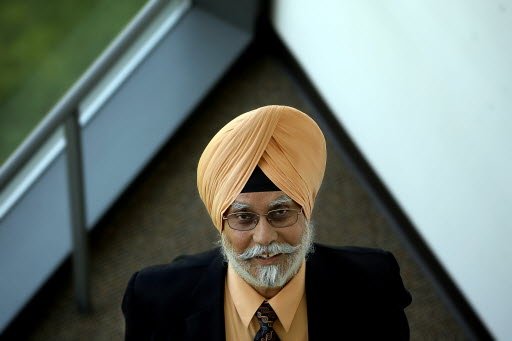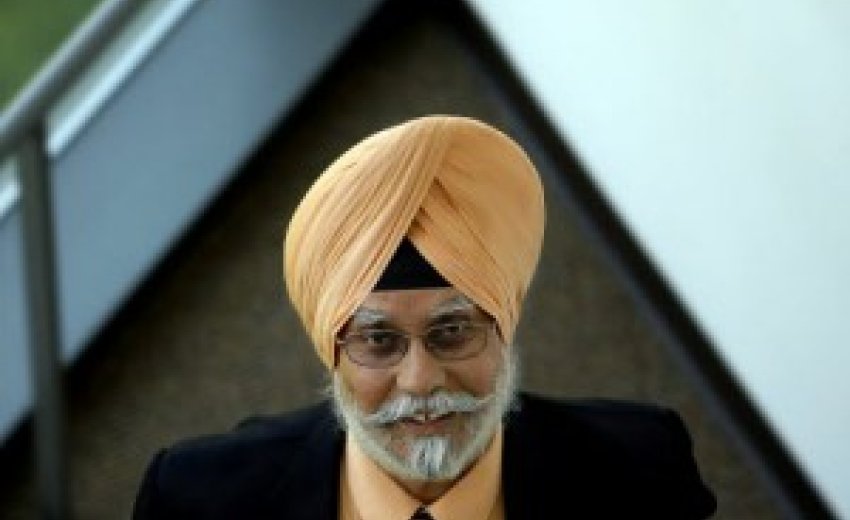 |
| Professor Pashaura Singh Terry Pierson/Staff photographer |
May 4th, 2015: Scholars of Sikhism from around the world converged at UC Riverside Friday through Sunday for a Sikh studies conference that organizers say is the largest in North America.
This year’s conference – the fourth at UCR -- addressed a number of issues, including Sikh environmental activism and political activism. But there was a special focus on Sikh millennials – who conference organizers define as people between ages 15 and 35 – who grew up in the United States, Canada, Europe and other places outside India, the center of Sikhism.
“They carry on Sikh traditions in their own way rather than the way the older generation carries on the traditions,” said Pashaura Singh, the chairman of Sikh and Punjabi studies at UCR.
Singh said that in the Inland area, more young people are embracing Sikh traditions than in the past, in part because they see classmates and friends whose parents are from countries such as Mexico forge identities that combine elements of both U.S. and Mexican cultures.
“This generation is bubbling with enthusiasm to discover their culture, their identity,” Singh said. “That happens with interaction with other cultures and other ethnic groups.”
Perhaps the most distinguishing feature of Sikh men is the turbans that they traditionally wear. The turbans - and the uncut hair beneath them - are signs in Sikhism of commitment to God.
But the turbans and many Sikh men’s long beards have made Sikhs the target of hate crimes, because their assailants often believe they are Muslim. Attacks surged after 9/11 and continue today. In August 2012, a man with neo-Nazi ties killed six members of a Sikh temple in suburban Milwaukee.
After the Wisconsin murders, I visited the Sikh temple in Jurupa Valley to talk with Inland Sikhs. A number told me they have been harassed repeatedly over the years and called names like "bin Laden."
But the anti-Sikh bigotry after 9/11 has led many young Sikhs to become more observant of cultural and religious traditions, Singh said.
“When they feel we are under attack, they embrace their identity,” he said.
Here is a conference program.
Previous conferences were held in 2008, 2011 and 2013.
Editors Note: the conference has passed this last weekend, the text has been edited from it's original form to reflects that.
